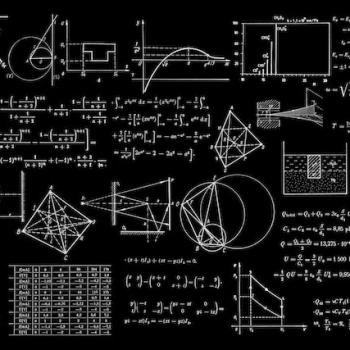My ACT scores suggested not so much genius as dissociative identity disorder. There were two distinct personalities who took the test. One was almost gifted (my word, not the College Board’s) in English and reading. The other was . . . less so. Math and, to an even greater degree, science left me frequently confused. And my scores showed it.
Much of the science portion of the ACT assesses reading comprehension skills applied to scientific topics. But my fear of perplexing nine-syllable terms within a discipline so audacious as to have its very own “method” kept my verbal talents at bay.
Sixteen Lousy Points
I was reminded of this deficiency during my sophomore year in college. As an English major, I only needed six credit hours science course, so I chose biology. Things started out well enough. My work ethic and study skills helped make up for my lack of natural scientific ability. In fact, I somehow made the highest grade on the first test in the course out of all sections of Biology 102 that fall.
But that didn’t last. One week I missed a couple classes to lead a retreat at my high school. I borrowed the notes from a guy in class I had a big crush on at the time, a perfect excuse to chat with the handsome athlete who had caught my eye. I soon found that he was far more handsome than he was smart. The journal entries of drunken Chinese pandas – written in Mandarin – had to be clearer and more complete than Tall-Dark-and-Stupid’s lecture notes. But it was all my fault. I hadn’t left myself enough time to come up with another plan to learn what I had missed.
“People are deeply nourished by the process of creating wholeness.”
~ christopher alexander
I failed the test. Miserably. For some reason, I remember one question that cost me a full 16 points: “What is variegated coleus?” I had no clue at that moment, but I’ll never forget it now. It’s a fern. With different colors. Yes, variegated coleus is a fancy, scientific name for a damn fern. By the way, I have needed that essential knowledge a sum total of zero times in the 30+ years since I took that test. I made all A’s in college . . . except for my one B in Biology 102. I graduated summa cum laude with a 3.97 GPA. No, I’m not bitter.
Lost in Translation
Ironically though, I have gained an appreciation for and genuine interest in science over the last couple decades. I have enjoyed learning about the origins of the universe, the relative nature of spacetime, and the wacked-out, freakish behavior of subatomic particles. Science, it turns out, is a fascinating portal into ultimate meaning.
Some feel that science and religious faith are incompatible. I disagree. I believe they are two languages used to talk about the same truths. Take the Big Bang, for example. I am captivated by the theory that the miracle of life today in all its complex diversity began as an initial singularity. The idea that a tiny spec of cosmic potential exploded and expanded into, well, everything is deliciously enchanting to me. And I find this explanation to be perfectly consistent with the truth behind the creation stories in the Book of Genesis. Each one – the world in seven days and Adam and Eve are two different stories – seeks to convey the truth that all life came from God and all of it is “good.” Two languages, one truth.
A Sacred Singularity
Last week I wrote that, “Wholeness is our birthright. It is our natural state, our default setting.” I could have said, “The atoms that make up you and me and everything else in the universe all come from an initial state of high density and temperature that erupted into being some 14 billion years ago.” Same difference. Two languages, one truth.
I could have used third language too, the language of trite platitudes: “We are one.” Sappy, yes. Cliché, for sure. But it’s a truth heralded by both science and religion . . . as well as psychedelic drug culture. That last part, kind of a joke. But draw your own conclusions.
So if we all come from the same divine wholeness but have collective amnesia about our common lineage, what on earth are we to do about it? How do we find our way back from the pain of division and separation to our initial participation in that divine wholeness? The answer is in this Sunday’s Gospel reading. And it’s as beautifully, deceptively simple as an ordinary damn fern.
Check back tomorrow! As I also said last week . . . beauty awaits.











